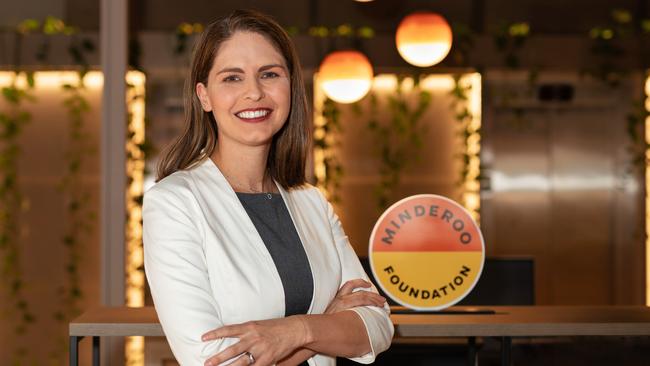Vaping-addicted students wear nicotine patches to Year 12 exams, school camps
New data has revealed the extreme lengths private and public school students are going to during their Year 12 exams.
Education
Don't miss out on the headlines from Education. Followed categories will be added to My News.
Exclusive: Students are wearing nicotine patches during their Year 12 exams because they are hooked on vapes, while alarming new research found nine in 10 teenagers say buying illegal e-cigarettes is easy.
The study, Generation Vape led by the Cancer Council, found that more than two thirds of 14 to 17-year-olds had used a vape knowing that it contained nicotine.
E-cigarettes containing nicotine are only legally available with a prescription under current laws.
Government figures also show the numbers of 14 to 17-year-olds who vape have shot up in the past five years, from one per cent to 14.5 per cent.
Psychologist Professor Claire Wakefield, who is part of a separate research project, said the issue had got so bad that young people were telling her they couldn’t get through an exam without nicotine.

“They’re actually needing to wear nicotine patches to get through an exam of three hours, which is just kind of mind-blowing, isn’t it?” Prof Wakefield, who works for the Minderoo Foundation, said.
“And similarly, in the younger years, we’re hearing about teenagers who are taking nicotine patches to school camp.
“And I mean, that just breaks my heart because I think school camp is a time to connect with your friends, learn new skills, and yet there’s kids going through nicotine withdrawal, taking patches, so that they can feel comfortable during camp.”
Alecia Brooks, co-author of Generation Vape and chair of Cancer Council’s Tobacco Issues Committee, said addressing easy access to e-cigarettes should remain a top priority for the government to curb the concerning rise in youth vaping, as well as reform to stop manufacturers and retailers marketing directly to young people.
The study found parents saw preventing their child from vaping as a high priority and three in four teachers reported addressing vaping as a high priority.

It comes as principals admitted the vaping crisis in schools was becoming increasingly difficult to manage.
Australian Secondary Principals Association president Andy Mison said his members were seeing an increasing use of vapes among kids which was “distressing”.
“It’s a big issue in schools,” Mr Mison said. “They are easy to conceal.”
Ms Brook said it was unfair to place the burden of managing this public health crisis on parents and teachers, when vapes continued “to be imported and sold illegally alongside lollies and snacks at convenience stores and tobacconists”.
“Until the planned tobacco and e-cigarette reforms are implemented and enforced, the industry will continue to profit at the expense of young people.”
Royal Australian College of General Practitioners (RACGP) vice president Dr Bruce Willett said GPs were seeing under 14s with a vaping habit.
He advised young people who were struggling to get through an exam due to their vaping addiction to accept they had a problem and to seek help.
Quitline, which has supported Australians to stop smoking for more than 30 years, said it was now helping those wanting to stop vaping and some of the callers were as young as 12.
A recent report by the Australian Institute of Family Studies (AIFS) found vaping was associated with a range of mental health challenges, including anxiety, depression and stress.
Quitline 13 7848, or visit quit.org.au
Does your child have a vaping problem? Have you struggled to get them help? Get in touch below.





